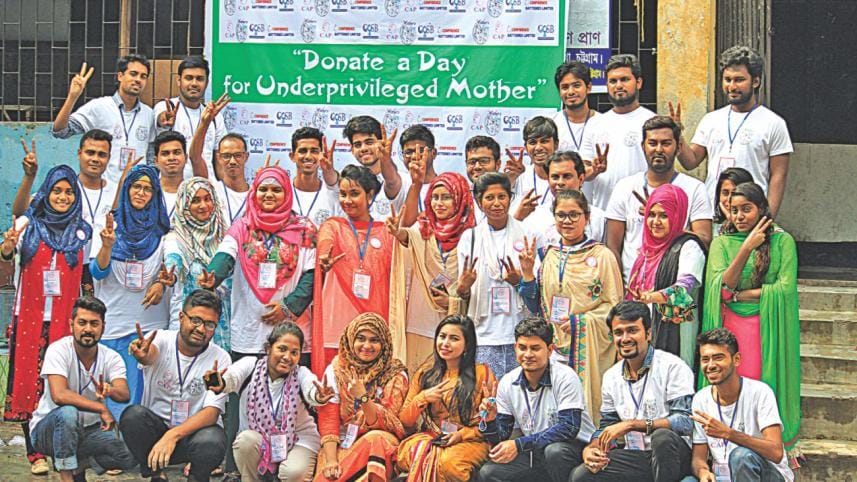Mother's Day for the underprivileged

On May 13, 2018, Cancer Awareness Programme for Women (CAP), a student initiative dedicated to preventing Breast and Cervical cancer, organised a cancer screening programme for the underprivileged mothers in Sweeper Colony, Pakistan Mat, Nazira bazar, Old Dhaka. Free VIA tests and Physical Breast Examinations were conducted by specialist doctors.
The event began with a small speech from Musa Karim Ripon, President of CAP. He briefed the audience about how professional experts from the medical field would be sharing some words before conducting the free examinations.
Dr Saif Uddin Ahmed, Professor of Department of Surgical Oncology at Bangabandhu Sheikh Mujib Medical University, was present to deliver an interactive speech amongst the mothers. He suggested that individuals affected by any form of cancer must not delay in starting treatment. Sharing the diagnosis with a family member can be the first step, and next, consulting with a doctor is a must.
Dr Swapan Kumar Bandyopadhyaa, Professor and Head, Department of Radiotherapy at Dhaka Medical College and Hospital, shared techniques to recognise the early stages of breast and cervical cancers. "It's alright to be affected by cancer. But, it's not alright to stay silent," he adds.
Towards the end, Dr Shaila Naznine Tania, Consultant, Department of Gynecology and Obstetrics at Bangabandhu Sheikh Mujib Medical University, explained how women can identify and diagnose whether one's affected with breast cancer.
The Mother's Day programme by CAP was supported by the Gynecology Society of Bangladesh and Confidence Batteries Limited. There was also an interactive question and answer session, where the mothers inquired about the precautions, indications and solutions to cancer. Finally, the screening programme took place to encourage the mothers to be aware of breast and cervical cancers. The doctors and volunteers were supportive throughout the entire process and persuaded all the mothers to take immediate action if they face any indication of cancer.
 For all latest news, follow The Daily Star's Google News channel.
For all latest news, follow The Daily Star's Google News channel.
Comments